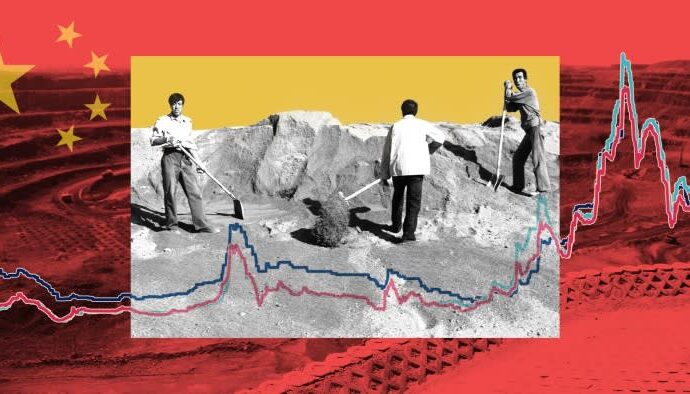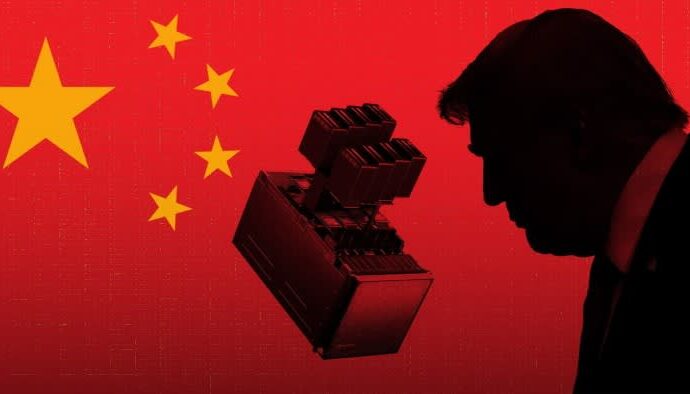Unlock the White House Watch newsletter for free
Your guide to what Trump’s second term means for Washington, business and the world
China is delaying the settlement of annual dues it owes to the UN later and later each year, exacerbating a funding crisis at the global body.
China’s late settlement of its mandatory dues for the UN regular budget has crept from two months overdue in 2021 to 10 months overdue in 2024, according to a Financial Times analysis of publicly available data.
Last year, China settled the final instalment of its $480mn contribution on December 27. Only North Korea paid the last of its roughly $157,000 in dues later, on December 30.
The delays have come as Beijing has sought to expand its influence at the UN and promote itself as the leader of an alternative to the US-led world order, with President Donald Trump increasingly stepping away from multilateral co-operation.
As the world’s biggest economies, China and the US, which is also regularly in arrears at the UN, are the top contributors to the UN budget.
“We can’t implement our budget fully or efficiently; we cannot plan our spending with confidence . . . if all member states do not pay in full or on time,” said UN Controller Chandramouli Ramanathan, discussing the organisation’s finances.
The UN was forced to cut spending for regular operations in its 2025 budget by 17 per cent, or about $600mn, Ramanathan said.
Member states finance the UN and its agencies through two streams: “assessed contributions”, which are treaty obligations and cover the UN’s $3.7bn regular budget, including the general assembly, as well as its $5.6bn peacekeeping budget; and “voluntary contributions”, which account for the majority of its income.
China’s share of the regular budget grew from 0.99 per cent in 2000 to 20 per cent, or $680mn, in 2025, just shy of the US at 22 per cent.
According to the latest data provided by the UN, the US owed about $1.5bn and China $597mn as of April 30 in unpaid contributions to the 2025 regular budget. The US owed another $1.5bn and China $587mn to the peacekeeping budget.
“The Chinese always pay late and do not give reasons,” said a diplomat in Geneva who works with the UN. Along with the US, China’s late payments threatened to “create a pretty huge liquidity crisis for the UN”, the diplomat said.
Many countries are regularly late paying dues, including the US, which defers its payments according to its fiscal calendar. Pew Research Center found that only 53 of the UN’s 193 member states paid their regular budget contributions on time every year since 2019, while UN data showed 41 remained in arrears as of the end of 2024.
Under UN rules, any unspent funds each year, even if they are submitted late, are credited to dues owed for the following year — meaning delayed payments force UN operations to go underfunded and save donor countries money.
In addition to late regular dues, China makes relatively low voluntary contributions to the UN’s web of humanitarian agencies, their main source of funding, relative to its size, according to experts.
Questioned about its late payments, China’s mission to the UN said: “The UN Secretariat should improve its planning and budget management for fund expenditures to reduce the financial impact of different payment timelines from member states.”
It added: “Delays in the payment of contributions due to procedural reasons are fundamentally different in nature and impact from the long-term failure of the largest contributor to pay a massive amount.”
The budget shortfalls come as China is manoeuvring to gain influence at the UN through appointments and a planned restructuring of its agencies.
David Scheffer, senior fellow at the Council on Foreign Relations, said that, given China’s focus on influencing the UN system towards its point of view, “I find it a little inexplicable why they’re delaying payments”.
Beijing has attacked the US over late payments, and for Trump’s withdrawal from organisations such as the World Health Organization and Human Rights Council. The US has set caps on funding for UN peacekeeping, and plans to withdraw from Unesco next year.
Beijing has promised to step up WHO funding to fill the gap left by the US. But it has yet to commit significant voluntary contributions and its past donations have lagged behind the US.
Washington paid a total of $13bn to the UN system in 2023, three-quarters of which was in the form of voluntary contributions, according to UN data. China paid $2.3bn that year, $150mn of which was voluntary.
“In the two-thirds of the stream that really funds the UN, China pays negligible amounts,” said Courtney Fung, an associate professor at Macquarie University.
Data visualisation by Haohsiang Ko in Hong Kong




